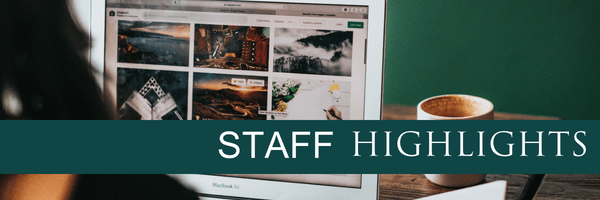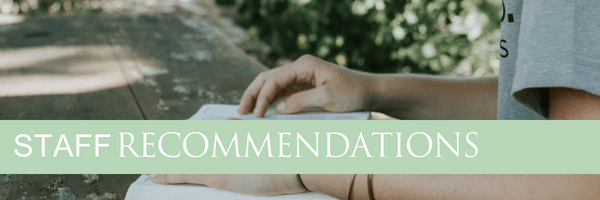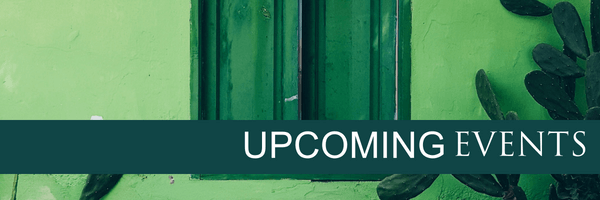The Real Difference Between Introverts & Extroverts

We see a lot more conversation around personality types, especially introversion & extroversion than ever before. Common knowledge tells us that introversion is staying at home, reading a book, cuddling up in front of Netflix; and that extroversion is going out to parties, having weekends booked full with plans, almost never being alone.
But there’s actually a lot more to introversion & extroversion than how sociable you are and introverts and extroverts engage in a lot of the same activities for fun (making plans, watching movies, etc.). So if it isn’t how we spend our weekends that separates the introverts from the extroverts, then what is it?
While we typically see introversion and extroversion as a binary–you’re one or the other–these personality types exist on a spectrum. Some people are more strongly extroverted or introverted than others, and some fall somewhere in the middle. Some may have extroverted tendencies that seem to “clash” with their introvert classification, but it’s rare that people are all-or-nothing when it comes to personality types.
Introversion is a descriptor. It means “turning inward.” When we apply that to people, we begin to see how it can shape our personality. Introverts recharge – and get your energy – by turning inward. Taking time for yourselves helps you recover energy, replenishes creativity, and overall reinvigorates you.
There is often a mischaracterization of shyness for introversion. Shyness can stem from insecurity or anxiety around social situations, while introversion isn’t about avoiding socializing, but about making solitary time to recharge a priority.
Being an introvert doesn’t mean that you’re incapable of being social, that you’re awkward or shy, or socially unaware. At its core, it simply means that you turn inward to recharge. And while introverts may have smaller social circles, your relationships are just as full of quality and connection.
Extrovert, equal & opposite to introvert, means “turning outward.” You turn outward–spending time with others, may seek big group conversations, and find bustling social interactions help you relax and recharge more than being solitary will.
Being an extrovert doesn’t mean you’re incapable of forming deep attachments, or inappropriately outspoken. At its core, extroversion is about replenishing your own energy and creativity through the company of others.
Some common traits of both types:
INTROVERTS TEND TO…
- have a smaller social circle, but deep connections to friends
- enjoy one on one conversations over large group discussions
- wait until prompted to share ideas/thoughts
- take more time for reflection
EXTROVERTS TEND TO…
- have a larger social network
- enjoy group conversations over one on one interactions
- think out loud or speak up without prompting
- make quick decisions
It’s normal to have qualities that match up with both introversion and extroversion–you don’t have to worry about being 100% one or the other. But understanding the basic building blocks of these personality types can help you to recognize truths about yourself, adjust your self-care and understand those around you better. It’s also good to remember that not every introvert or extrovert looks the same. These traits are just a jumping-off point for personality and each one can be found at any point on the spectrum.
Want to schedule a 10-minute call with our Intake Coordinator? Check out our scheduling link here.
Whether you are struggling with a particular issue or just can’t shake the feeling that there should be more to life, Holistic can help.
Call 614-607-0980 for details or to schedule an appointment.


STAFF HIGHLIGHT:
JESSICA CUTSHALL
Jessica earned her Master’s in Counselor Education and is a licensed professional clinical counselor. Additionally,, she is a doctoral candidate at The Ohio State University. Jessica has extensive teaching and clinical experience helping others become more successful. She has taught classes focused on success and critical thinking and brings this professional knowledge into her clinical work.
Jessica believes in helping others become more self-aware, authentic, and responsible for their lives and helping clients increase their motivation to reach their personal goals. Jessica believes in challenging clients to become more reflective and action-oriented and to try new skills in order to increase well-being.
Although Jessica believes in a well-being and resilient approach to counseling, she has clinical experience treating clients who have depression, anxiety, and other mood disorders. She has worked with adolescents and adults and has seen clients for LGBTQ and sexuality issues, grief, adoption, identity, PTSD, anger, shame, addictions, assertiveness, relationship issues, gender issues, as well as motivation. Jessica approaches counseling in an honest and authentic manner and uses theoretical approaches including CBT, Interpersonal Therapy, Feminist Theory, and Humanistic Therapy.

Our featured staff member, Jessica Cutshall, recommends the following books:
The 10 Best-Ever Anxiety Management Techniques: Understanding How Your Brain Makes You Anxious and What You Can Do to Change It by Margaret Wehrenberg Psy.D
This book offers advice + tips to help anxious folks manage their anxiety on a day to day basis. It offers information so you can understand your anxiety + control it. Find it here!
The 10 Best-Ever Depression Management Techniques: Understanding How Your Brain Makes You Depressed and What You Can Do to Change It by Margaret Wehrenberg Psy.D.
Like the book above, this book offers advice + tips to help folks manage their depression on a day to day basis. It offers information so you can understand how depression works + how to control it. Find it here!
First, We Make the Beast Beautiful: A New Journey Through Anxiety by Sarah Wilson
Sarah Wilson, the author of this book, was inspired to write about anxiety after reading the Chinese proverb: “The Chinese believe that before you can conquer a beast, you must first make it beautiful.” She explores anxiety triggers, treatment options, trends, interviews fellow anxiety sufferers, and offers tips for living with anxiety. Find it here!

Holistic Consultation is offering several groups this spring.
Group therapy is intended to help all active clients to learn to form a common identity and a sense of shared purpose with others who have faced similar struggles in life. You will build trust, respect, and compassion with your group members which allows you to do deep, healing work. Our groups meet weekly for 60-90 minute sessions.
You can find out more about the groups we’re offering here and contact 614-607-0980 to learn more or to register. Please Note: All of our group offerings will be canceled for the week of March 11-15th due to Spring Break.
Want to schedule a 10-minute call with our Intake Coordinator? Check out our scheduling link here.


